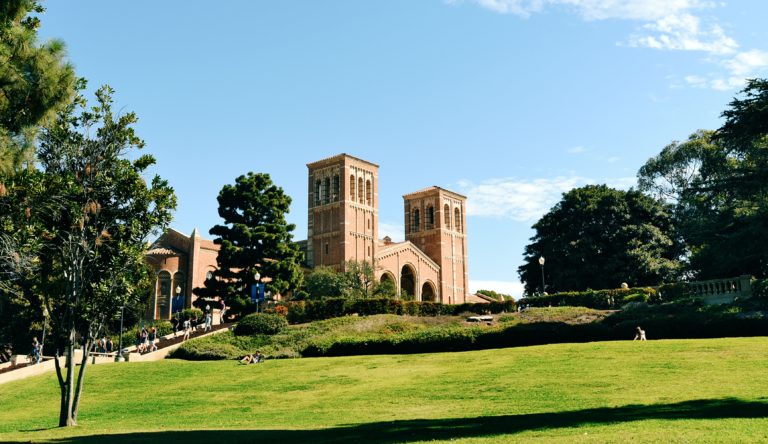
Andrew Strom is an Associate General Counsel of Service Employees International Union, Local 32BJ in New York, NY.
Despite what you may think, in the United States, strikes have become exceedingly rare. According to the Bureau of Labor Statistics, back in 1979, there were 235 strikes involving more than 1,000 workers, and more than one million workers participated in those strikes. By contrast, in 2021, there were 16 major strikes, involving a total of 82,000 workers. Yet, a few high profile strikes last October generated headlines referring to “Striketober.” Unfortunately, it seems that the only lasting impact of that mini-wave of activity will be a Supreme Court decision making strikes even riskier for workers.
Later this Term, the Supreme Court will hear a case called Glacier Northwest Inc. v. Intl. Brotherhood of Teamsters Local Union No. 174. You probably don’t need me to tell you that in a dispute between management and labor, the chances of this Supreme Court ruling for workers are somewhere between slim and none. This case involves a strike by truck drivers who work for a company that makes concrete. The workers had staggered start times between 2 a.m. and 7 a.m., and the union decided to call the strike for 7 a.m., when all the drivers had arrived at work. The trucks mix the concrete, and if the mixing stops, the concrete begins to harden after 20 or 30 minutes. When the drivers went on strike, 16 of them returned to the company’s facility with fully loaded trucks. The drivers left their trucks running, but managers had to act quickly to offload the concrete so that it wouldn’t damage the trucks. Glacier Northwest sued the Teamsters in state court, accusing the union of “intentional and malicious sabotage,” seeking to recover all of its cleanup costs and expenses as well as lost profits. In addition, the company sought punitive damages. The question in this case is whether federal labor law preempts this state court lawsuit, and the answer under current law is that of course it does.
The Supreme Court has long held that labor-management relations are governed exclusively by federal law, and as a result, even when certain activity is not protected by the National Labor Relations Act, that just means that Congress left that conduct “to the free play of economic forces.” So, in other words, if workers engage in a strike that’s protected by the NLRA, then it is an unfair labor practice for an employer to retaliate against the striking workers. But, as the Supreme Court held in a 1976 case, Lodge 76, Int’l Assn. of Machinists v. Wisc. Emp. Relations Commission, if workers engage in a strike that is not protected by the NLRA, the employer is free to fire the workers, but states are still not allowed to regulate that conduct. The same goes for employer conduct. If an employer lies to workers to get them to vote against unionization, the workers can picket with signs calling the employer a liar, but they may not file a suit in state court alleging fraud.
At the core of Glacier Northwest’s case is a seventy-year-old NLRB decision that was decided with no analysis, and no subsequent case provides a justification for its holding. In that case, Marshall Car Wheel & Foundry Co., workers at a foundry walked off the job without giving any advance notice. The employer argued that the strike should be considered unprotected because it was “deliberately timed so as to accomplish a partial destruction of Respondent’s plant and/or equipment.” Before the 1947 Taft-Hartley Act, supervisors were covered by the NLRA and the Board had held that supervisors had a duty to take reasonable precautions to protect their employer’s property before joining a strike. The Board later extended that principle to plant-protection employees. In Marshall Car Wheel, the Board simply announced that “this duty extends as well to ordinary rank-and-file employees.” But why should rank-and-file workers have an obligation to time their strike so as to minimize harm to the employer’s property? There is generally no corresponding employer obligation to provide notice to workers before firing them, no matter how much havoc that may wreak on the worker’s life. Moreover, the NLRB had previously held in Duluth Bottling Association that an employer was privileged to lock out its workers in anticipation of a strike in order to avoid the possibility of spoilage of materials. And if that wasn’t enough to negate any duty workers might have to limit the impact of their strikes, the Supreme Court’s 1965 opinion in American Ship Building Co. v. NLRB should have put the issue to rest. In American Ship Building, the Supreme Court gave its blessing to the offensive lockout, granting employers the power to determine the timing of work stoppages. In holding that the Board lacked authority to outlaw the offensive lockout, the Court explained that the NLRA does not give the Board the authority “to deny weapons to one party or the other because of its assessment of that party’s bargaining power.”
Even if the Marshall Car Wheel duty has survived American Ship Building that doesn’t mean that there is any merit to Glacier Northwest’s lawsuit. At most that would allow the company to fire the strikers, but in accordance with Machinists, it still would not allow the company to sue the workers or their union for damages. But Glacier Northwest has latched on to a phrase in the Machinists decision that it has then taken out of context to justify its lawsuit. In Machinists, the Court noted that “[p]olicing of actual or threatened violence to person or destruction of property has been held most clearly a matter for the States.” In fact, each of the cases cited for that proposition involved violence or threats of violence. There is no question that states have authority to regulate acts of violence that cause damage to property even if those acts occur in the course of a labor dispute. But Glacier Northwest is trying to argue that states should have a right to punish unions and workers for the damage to property that flows from a work stoppage. The Washington State Supreme Court rejected Glacier Northwest’s argument because it could not find a logical way to distinguish this case from a case where a supermarket sues its workers for striking because the strike caused the store to throw away perishable fish.
In the real world, the decision to strike is something workers do only as a last resort. Most workers live paycheck to paycheck, so they can’t afford to sacrifice even a week’s wages. Imagine if, to make the right to strike meaningful, the Supreme Court required employers to pay workers enough for them to each have their own nest egg. Instead, to further protect employers from strikes, the Court has allowed employers to permanently replace strikers. You would think that the Supreme Court doesn’t need to put its collective thumb on the scale to tip the balance even further in favor of bosses. It’s possible, though unlikely, that even this Court will decide that Glacier Northwest’s case is too much of an overreach. But I wouldn’t bet on it.










Daily News & Commentary
Start your day with our roundup of the latest labor developments. See all
December 11
In today’s News and Commentary, Biden’s NLRB pick heads to Senate vote, DOL settles a farmworker lawsuit, and a federal judge blocks Albertsons-Kroger merger. Democrats have moved to expedite re-confirmation proceedings for NLRB Chair Lauren McFerran, which would grant her another five years on the Board. If the Democrats succeed in finding 50 Senate votes […]
December 10
In today’s News and Commentary, advocacy groups lay out demands for Lori Chavez-DeRemer at DOL, a German union leader calls for ending the country’s debt brake, Teamsters give Amazon a deadline to agree to bargaining dates, and graduates of coding bootcamps face a labor market reshaped by the rise of AI. Worker advocacy groups have […]
December 9
Teamsters file charges against Costco; a sanitation contractor is fined child labor law violations, and workers give VW an ultimatum ahead of the latest negotiation attempts
December 8
Massachusetts rideshare drivers prepare to unionize; Starbucks and Nestlé supply chains use child labor, report says.
December 6
In today’s news and commentary, DOL attempts to abolish subminimum wage for workers with disabilities, AFGE reaches remote work agreement with SSA, and George Washington University resident doctors vote to strike. This week, the Department of Labor proposed a rule to abolish the Fair Labor Standards Act’s Section 14(c) program, which allows employers to pay […]
December 4
South Korea’s largest labor union began a general strike calling for the President’s removal, a Wisconsin judge reinstated bargaining rights for the state’s public sector workers, and the NLRB issued another ruling against Starbucks for anti-union practices.